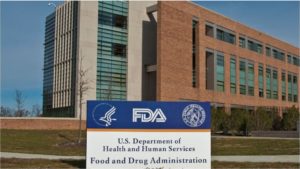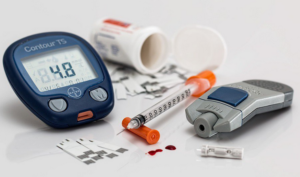- Challenge of Allergan tribal patent deal in uncharted legal territory (reuters.com)
As generic drug manufacturers are gearing up to argue that a deal Allergan Plc made with a Native American tribe to shield patents from administrative review is a sham, some experts say the generic companies are in uncharted legal territory...Last week, Allergan announced it would transfer the patent rights to its Restasis dry-eye treatment to the Saint Regis Mohawk Tribe, which will license them back to the company in exchange for ongoing payments...Richard Torczon, a lawyer for generic drug company Mylan NV, said the tribe is abusing the defense of sovereign immunity, which he said is intended to shield tribes that get dragged into court without their consent...“The tribe here has not been dragged into this proceeding against its will,” Torczon said during a hearing...before three judges from the patent board. “It has deliberately by its own admission targeted these proceedings for exactly this kind of revenue-generating opportunity,”
- New Oregon Law Lets Pharmacists Prescribe Formulary Drugs, Devices (ashp.org)
As early as January 1, Oregon pharmacists will be permitted to prescribe and dispense drugs and devices listed on a formulary to be established by the state board of pharmacy under a bill recently signed by Governor Katherine Brown...The formulary, according to the new law, may contain such "post-diagnostic" items as diabetic testing supplies, smoking-cessation aids, epinephrine autoinjectors, albuterol inhalers, rapid strep tests, and spacers for inhalers...Other possibilities mentioned in the law are discharge medications during transitions of care and emergency refills of insulin..."Nothing about this is new territory," said Michael E. Millard, cochair of the Oregon Society of Health-System Pharmacists...Legal and Regulatory Affairs Committee, in explaining why the prescribing bill passed the legislature on the first try...the bill builds on past legislation and advances pharmacy practice a step further...
- Senate reauthorizes FDA to collect fees from drugmakers (reuters.com)FDA Reauthorization Act heads to Trump’s desk after Senate passage (drugstorenews.com)
The Senate...passed a bill allowing the Food and Drug Administration to continue collecting fees from drug companies to review new product applications...The FDA Reauthorization Act renews an existing law that expires on Sept. 30 and which provides the majority of FDA funds used to review pharmaceuticals and determine whether they are safe and effective. The Senate passed the bill by a vote of 94-1...It was passed last month in the House of Representatives.
- Nevada forces drugmakers to reveal insulin pricing, profits (ktvn.com)Nevada just passed one of the strictest drug pricing transparency laws in the country (businessinsider.com)
Nevada Gov. Brian Sandoval signed into law...the nation's strictest requirements for pharmaceutical companies to reveal how they set certain prescription drug prices...The bipartisan legislation focuses on insulin - one of many life-sustaining prescription treatments sold in the U.S. at prices that have skyrocketed over the last decade...The law requires drugmakers to annually disclose the list prices they set, profits they make and discounts they give market middlemen on insulin...They must also give state officials written explanations of any insulin price hikes that surpass the previous year's inflation rate...The bulk of the legislation takes effect in October, but the first disclosures will be due on April 1, 2018...insulin manufacturers will face fines of $5,000 daily if they fail to provide the data without explaining why...pharmacy benefit managers, suggested that the law's "costly fiduciary mandate" resembles legislation that federal courts have previously rejected based on violations of federal benefits laws...In addition to the insulin-specific requirements, Nevada's law will outlaw "gag rules" that bar pharmacists from suggesting alternate or less-expensive prescription options...All drugmakers will also have to register sales representatives who market prescription drugs in Nevada...
- Why the Biosimilar Drug Revolution Hasn’t Arrived (bloomberg.com)
In a word: patents...The Biologics Price Competition and Innovation Act (2010) was...part of the Affordable Care Act. Its essential goal was to infuse competition and lower the prices of drugs that were made from living cells -- so-called biologics...Until the 2010 law, biologics had no fear of competition -- there was no legal way to introduce generic versions into the market -- so they were able to maintain their monopoly price even after their patents expired. The BPCIA was intended to establish mechanisms within the Food and Drug Administration, the Patent and Trademark Office, and the courts that would allow the introduction of "biosimilars." These drugs weren't exact replicas of biologics, but were similar enough, and safe enough, to be used instead of the brand-name drugs...Here we are seven years later. Guess how many biosimilars have made it to market?..Two...companies are forced to fight through thickets of patents to get a biosimilar to market, a law that was supposed to save the U.S. billions will continue to do just the opposite: make it easy for biologic makers to maintain unwarranted monopolies...
- Bill to allow imported drugs from Canada aims to create competition (mmm-online.com)
As lawmakers grapple with addressing sky-high drug prices, the debate around allowing importation of lower-priced versions of the same branded medications from Canada has again cropped up in policy circles…Sen. Bernie Sanders has been a major advocate...introducing the Affordable and Safe Prescription Drug Importation Act...bill would create a legal pathway for U.S. pharmacies to import lower-priced versions of branded medications from Canada and possibly other countries...The Congressional Budget Office has estimated that Sanders' bill would save the U.S. federal government nearly $7 billion over the next decade. But a number of influential stakeholders, including drugmakers and former FDA commissioners, have expressed concern about whether the legislation would increase safety risks...Sanders' bill...would require HHS to allow wholesalers, pharmacies, and individuals to import prescription drugs manufactured at FDA-inspected facilities that are operated by licensed companies in Canada. In the policy statement, the senator said that Canadian pharmaceutical manufacturing standards are comparable to U.S. regulations…
- Drugmakers and distributors face barrage of lawsuits over opioid epidemic (washingtonpost.com)
The companies that manufacture and distribute highly addictive painkillers are facing a barrage of lawsuits for the toll their product has taken on communities across the country as the worst drug epidemic in U.S. history continues to escalate...Within the past year, at least 25 states, cities and counties have filed civil cases against manufacturers, distributors and large drugstore chains that make up the $13 billion-a-year opioid industry. In the past few weeks alone, the attorneys general for Ohio and Missouri, along with the district attorneys for three counties in Tennessee, filed suits against the industry — and the attorney general for Oklahoma filed suit on Friday...The strategy echoes the effort against major tobacco companies in the 1990s and is born of similar frustration over rising death rates and the increasing costs of addressing the continuing public health crisis. After years of government and pharmaceutical firms failing to control the problem, some lawyers say the suits have the potential to force the industry to curb practices that contribute to it...Representatives of the companies deny wrongdoing and vow to vigorously defend themselves. They said they have taken steps to prevent the diversion of their drugs to the black market. Stemming the epidemic, they said, will take a coordinated effort by doctors, the industry, and federal and local government agencies..."As we look to prevent abuse and misuse in the future, it will require a forward-looking, systemic approach that calls on greater coordination and collaboration between health-care, law enforcement, and state and federal regulatory authorities," said the Healthcare Distribution Alliance, which represents companies that distribute drugs...
- PhRMA and BIO Initiate Litigation to Challenge Unconstitutional Provisions of Nevada’s SB 539 (phrma.org)
The Pharmaceutical Research and Manufacturers of America the Biotechnology Innovation Organization today initiated litigation in the United States District Court for the District of Nevada challenging provisions of SB 539, a Nevada law that would violate patent rights and negate trade secret protection for designated diabetes medicines in a way that would harm patients and chill future biomedical innovation...PhRMA and BIO seek a declaration from the Court that the challenged provisions of SB 539 are preempted by federal law and violate several provisions of the United States Constitution...also seek an injunction prohibiting the implementation or enforcement of these challenged provisions...The Complaint alleges that provisions of SB 539 violate the Constitution in at least four ways:
- by interfering with federal patent law;
- by interfering with federal trade secret law;
- by violating the Takings Clause of the Fifth Amendment of the United States Constitution which prohibits government from taking property without just compensation; and
- by violating the dormant Commerce Clause of the United States Constitution, which prohibits Nevada from impeding commerce in other states.
- Pharmacists support real-time monitoring across Australia (psa.org.au)
New legislation to deliver a real-time prescription monitoring system in Victoria has been welcomed by the peak national body for pharmacists, the Pharmaceutical Society of Australia...Legislation introduced into the Victorian Parliament...will establish the legislative framework for a Victorian real-time monitoring system...PSA Victorian President Benjamin Marchant said PSA welcomed the long-overdue system, which will support clinical decision-making by prescribers and pharmacists to optimise use of medicines and save lives in Victoria...“The system will allow timely and relevant information to be shared among prescribers and pharmacists, ensuring potent medicines are used safely,” Mr Marchant said. “The system will identify people at risk of harm and provide referral pathways for pharmacists to support our patients...“PSA supports the Victorian legislation’s mandatory requirements for prescribers and pharmacists. The system should be integrated and streamlined for prescribing and dispensing software to ensure it is effective and useable.”...
- Change law and raise taxes to enable STPs to improve NHS, report urges (pharmaceutical-journal.com)
A lack of statutory power and severe underfunding are creating barriers to promising NHS reforms set out in sustainability and transformation plans (STPs), a think tank is warning...A report from the Institute for Public Policy Reform found that...44 regions in England had by and large correctly identified the right solutions, including moving care into the community and prevention...But there are several barriers that will prevent the ‘vision’ being realised, including a failure of leadership, the risk the NHS is being ‘engulfed by funding pressures’ and a lack of legal power to deliver the reform set out by the STPs...Among the IPPR recommendations is a call for the government to create a new ‘NHS tax’ by raising taxes for the highest paid to provide an extra £3.9bn a year to tackle the NHS ‘funding crisis’...In coming years, the NHS is facing a £22bn funding gap, which means limited resources are being spent maintaining the status quo rather than introducing a reform…There should also be changes to the law to better enable the pooling of budgets and commissioning functions locally and to give regional bodies a formal role in the system and put into effect place-based health and care...










